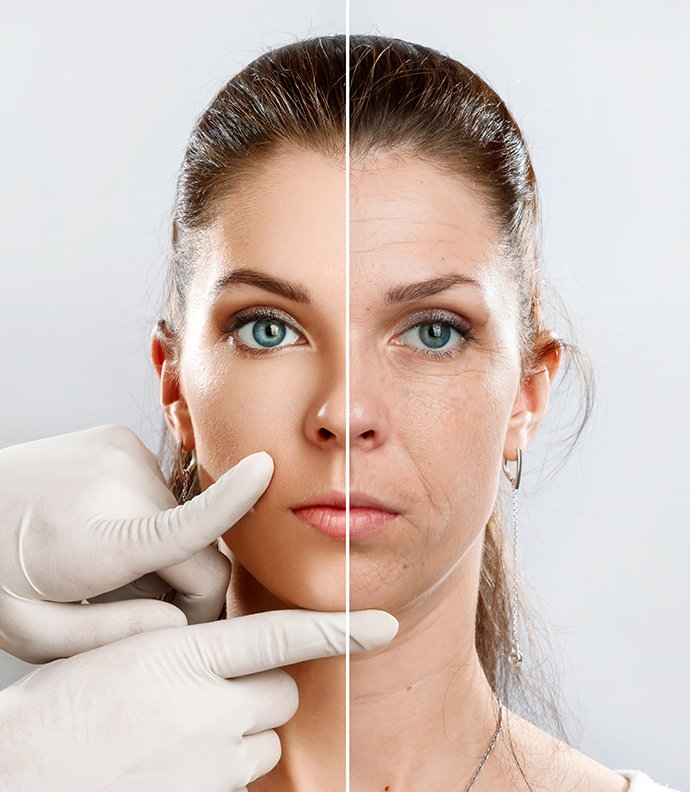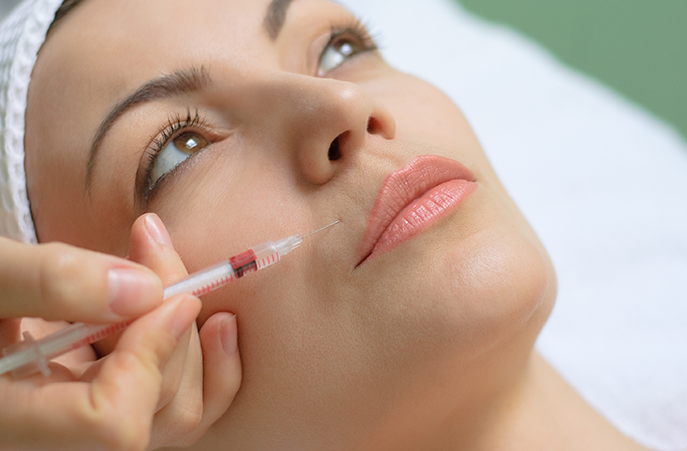Botox Neurotoxin Treatment for Hyperhidrosis
Introduction
Botox (botulinum toxin type A) is a clinically validated method for controlling excessive sweating (hyperhidrosis). Injections target overactive sweat glands by interrupting nerve signals, thereby reducing perspiration in treated zones. At Bayswater Dental Clinic, we apply precision techniques to deliver effective, long-lasting sweat suppression with safety and comfort in mind.

Benefits
- Significant reduction in sweat output in the treated area
- Reduces odor and dampness, improving hygiene and comfort
- No surgery or incisions required
- Minimal disruption — many patients return to normal activities promptly
- Customised dose and injection pattern per individual anatomy
- Proven safety record in clinical use
- Enhances confidence in social, professional or personal situations

Treatment Process
-
Consultation & mapping
We begin by assessing your sweating pattern, reviewing your medical history, and possibly conducting a sweat test (e.g., starch-iodine mapping) to pinpoint active areas.
-
Skin cleansing & numbing
The target region is cleaned and sterilised. A topical numbing cream or cooling is applied to reduce any sensation during injection.
-
Injection stage
Using fine needles, small increments of Botox are placed in a grid or pattern over the affected zones (e.g., underarms, palms, feet, forehead). Each injection disrupts nerve transmission to local sweat glands.
-
Onset & monitoring
Botox begins to block nerve signals gradually. Sweat reduction typically becomes noticeable within several days. We observe you briefly post-treatment for immediate reactions.
-
Follow-up & evaluation
We schedule a review to assess effectiveness. If needed, minor “touch-up” injections can correct under-treated areas. The full session usually takes 20 to 45 minutes, depending on size and number of treated zones.
Call 020 7229 4627 now to arrange your assessment and plan a treatment option.
Cost
To receive an accurate estimate for neurotoxin treatment for hyperhidrosis, please call the clinic. The total cost depends on the number of zones treated, dosage required, and complexity of distribution.
Aftercare
- Avoid rubbing, pressing, or massaging the treated region for at least 24 hours
- Refrain from strenuous exercise or heat exposure (saunas, hot showers) for 24–48 hours
- Keep the area clean and dry
- Mild redness, swelling or discomfort is common and should settle in 1–2 days
- Contact us if you notice unexpected muscle weakness beyond the zone, asymmetry, or signs of infection
Suitability
You may be a good candidate if you:
- Have focal excessive sweating unresponsive to antiperspirants
- Are generally healthy with no contraindications
- Understand that effects are temporary and maintenance is needed
You may not be suitable if you:
- Are pregnant or breastfeeding
- Suffer from neuromuscular disease or certain systemic conditions
- Have skin problems (infection, inflammation) in treatment areas
- Are using medications that interact adversely with botulinum toxin
We carefully assess your health and suitability during consultation before recommending treatment.

Alternatives & Complementary Options
- Prescription antiperspirants for mild cases
- Iontophoresis (especially for hands and feet)
- Oral medications (anticholinergics)
- Energy-based therapies (e.g. microwave, thermal) to ablate sweat glands
- Surgical sympathectomy or sweat gland excision in severe, refractory cases Often, combining methods yields the best control and comfort.
Frequently Asked Questions
-
How soon will I see results?
Sweat reduction tends to begin within 2–7 days, with full effect by day 10–14.
-
How long does the effect last?
Results generally persist 4 to 6 months, after which retreatment is common.
-
Is it safe?
Yes — when administered by experienced clinicians, Botox for hyperhidrosis is widely considered safe. Side effects tend to be mild and temporary.
-
Will I sweat elsewhere more?
Some people experience increased sweating in untreated areas (compensatory sweating), but it is typically mild.
-
Does it hurt?
Most patients report only minor discomfort. Numbing agents and fine needle technique help keep it tolerable.
-
Can results wear off faster with repeated use?
In some cases, duration may shorten slightly over many cycles. We monitor and adjust dosing to maintain effect.
- Monday 09:00AM - 08:00PM
- Tuesday 09:00AM - 08:00PM
- Wednesday 09:00AM - 08:00PM
- Thursday 09:00AM - 08:00PM
- Friday 09:00AM - 08:00PM
- Saturday 09:00AM - 08:00PM
- Sunday 09:00AM - 04:00PM






